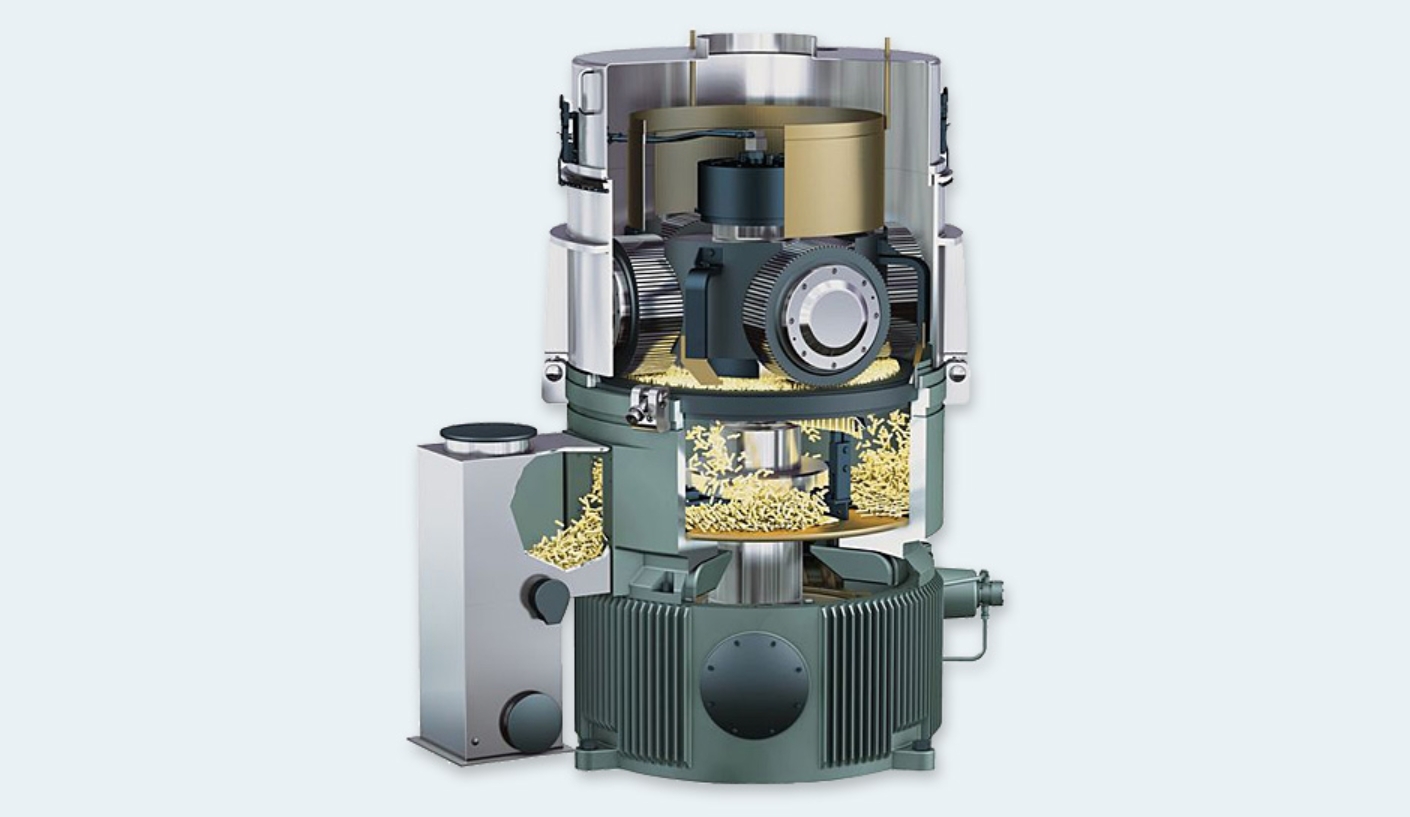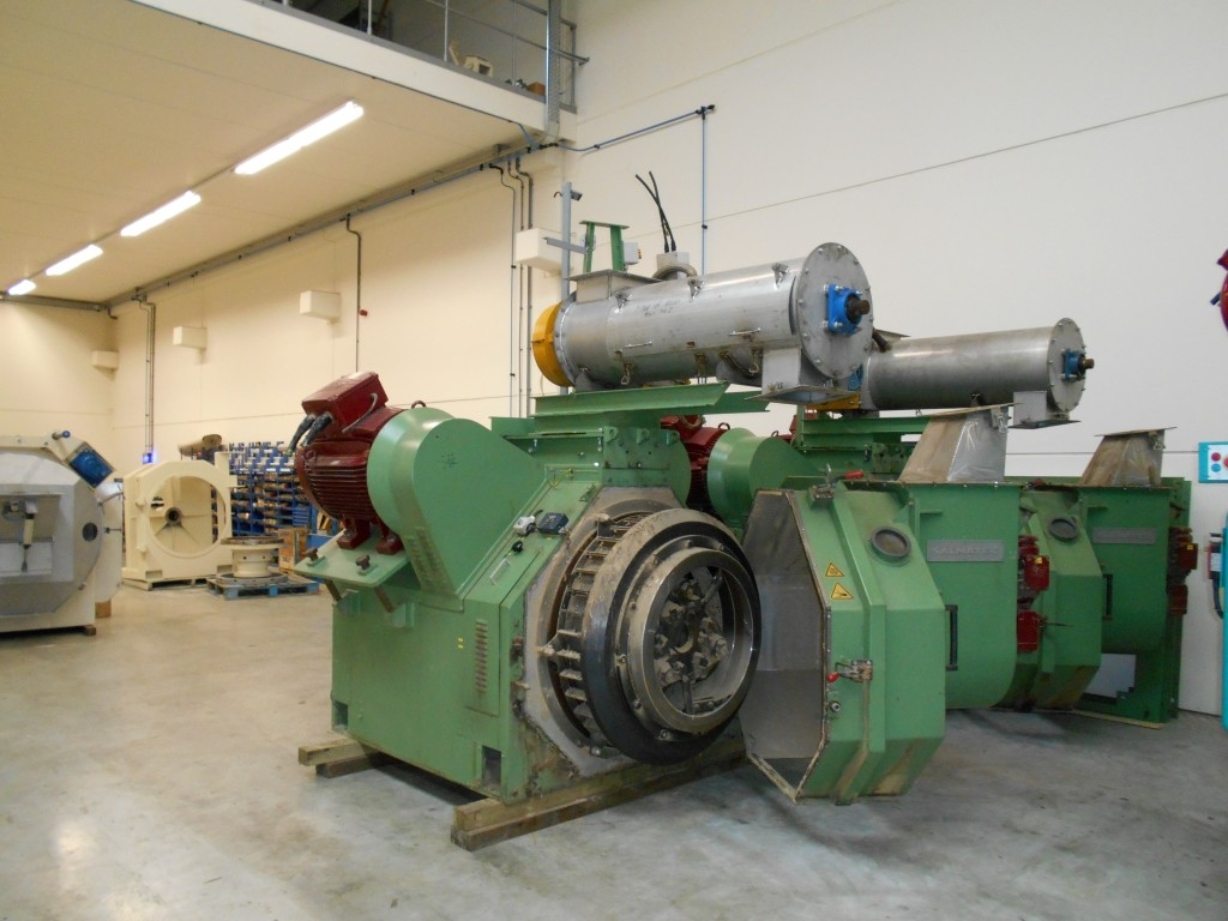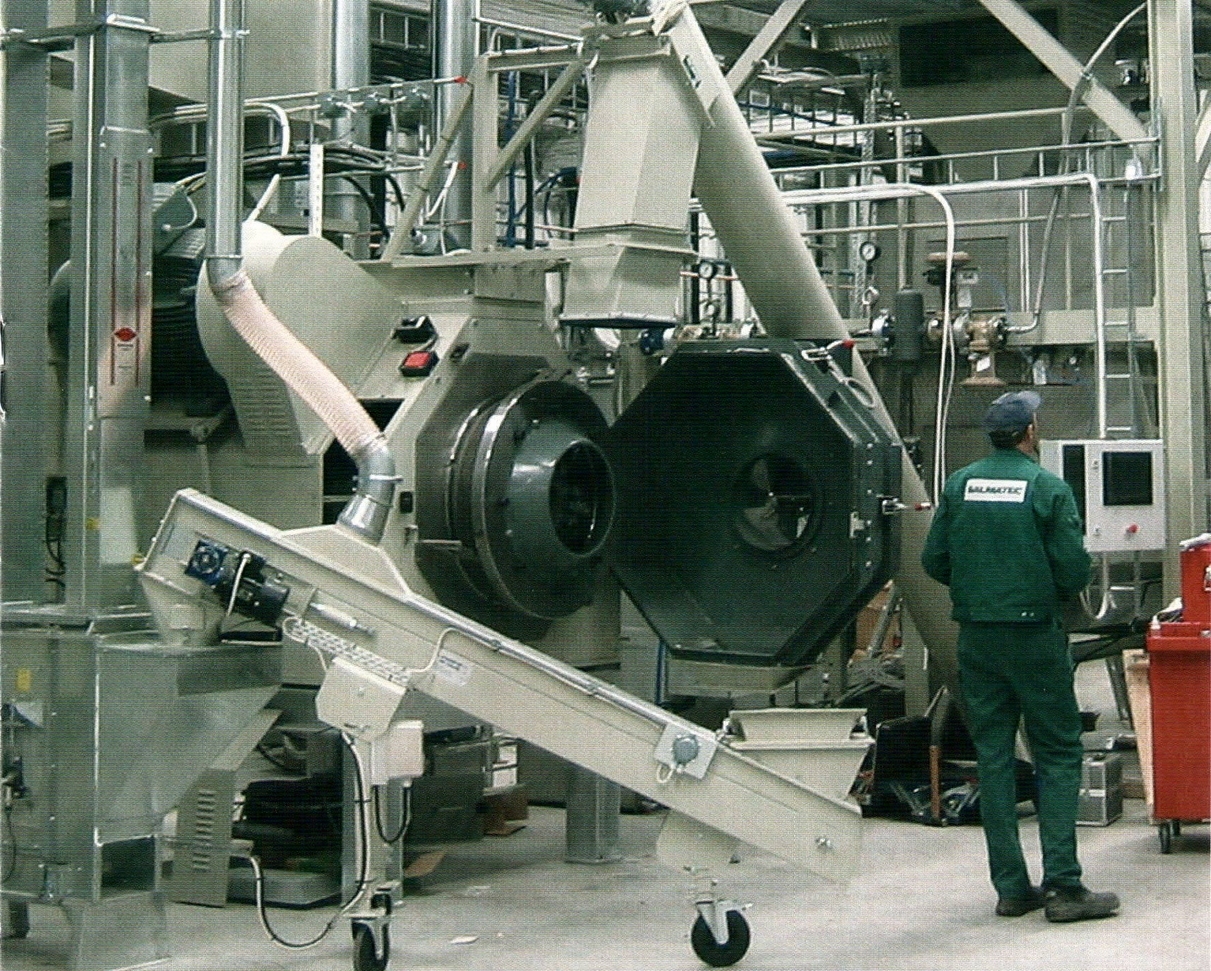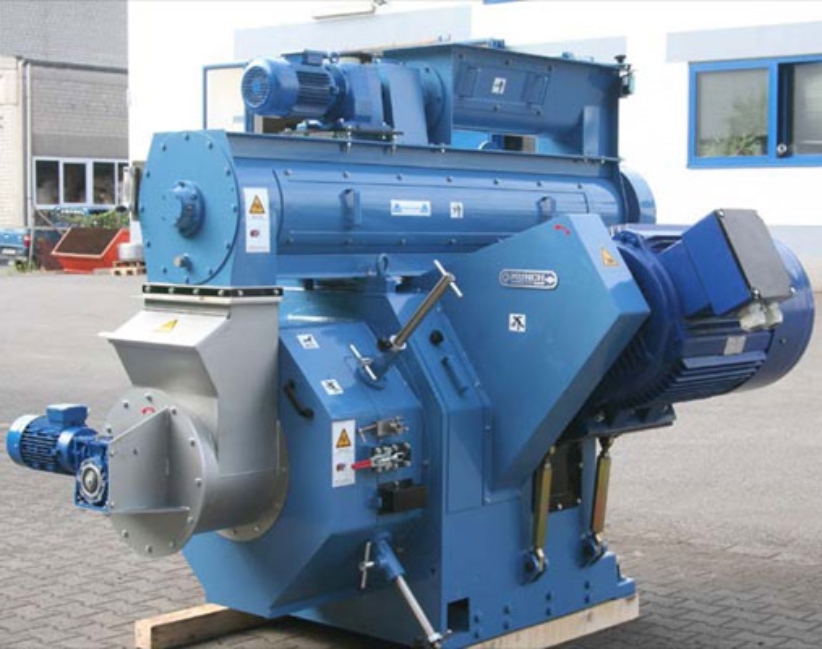The amount of wood pellet machine manufacturers in Germany has experienced a significant increase since 1990, when wood pellet heating market in Germany was only gaining its popularity. For the time being, Germany is one of wood pellet market leaders with the hugest amount of wood pellet consumers and producers in Europe.
As wood pellet market in Germany experienced its development wood pellet machine manufacturers have succeeded in promoting their production both on local and world market as well. Over the last ten years two major factors have appeared as a driving force for pellet market development, which indisputably led for the introduction of wood pellet machines by German manufacturers. The first factor is the consistent rise of prices in fossil fuels such as oil and gas. Nowadays, this factor experienced significant reduction of its influence on the German market as for today the prices of fossil fuels are falling and that is why the demand for the latter sources of energy is in the process of increasing. Nevertheless, wood pellet demand has not decreased drastically and in particular in the state members of the European union as the countries are obliged to follow their national biomass action plans to meet targets set by the European union. As far as biomass usage is concerned, it is predominantly understood as a main source of energy in Europe and Germany in the future. The legislation of Germany was taken as a basis for promotion of biomass energy in other countries and for today the other countries are expected to provide comfortable energy transition in order to improve the climate situation by reducing the amount of greenhouse gas emissions.

Other factors which contributed to the stable development of German pellet machine manufacturers market are a great amount of feedstock and raw materials available for pellet making in the country, Germany being one of the richest lands in forests in Europe. As far as we know, the first pelletizing machine was developed in order to make pellets for animal bedding and feeding. For the time being, a great range of wood pellet machines is offered by German manufacturers so that one could make wood granules which are to be used not only in farming but for heating purposes as well.
Ecological situation as well as high prices for fossil fuels caused sustainable development of alternative and renewable sources of energy. Wood pellet market is no exception. So there is an increased interest at wood pellet production which also assists in promoting of wood pellet equipment by German manufacturers.
Wood pellet production is gaining popularity as a process of the recycling of local residues. Every European country is trying to introduce wood pellet plants to provide more sustainable wood usage and energy consumption in their countries. As a rule, the most reliable and efficient equipment for coherent pelletizing is made by the German pellet machine manufacturers. Wood pellet mills from Germany tend to work without serious malfunctions producing high quality wood pellets to be used for local heating and industrial heating of various European countries which chose German pelletizing equipment.
There has been a significant increase of demand for wood pellets in the countries of Northern, Western and Eastern Europe, especially in German, over the course of the last few years. Wood pellets are mainly produced with the help of special wood pellet machines offered by pellet machines manufacturers. These machines are a kind of pellet equipment. For the production of one ton of wood pellets, approximately 5 to 8 cubic meters of wood particles are required. Pellet machines work according to certain pellet-making technics. They are as follows: different kinds of wood residues are pressed together and as a result, a wood pellet with 4-10 mm diameter and 20-50 mm of length is produced. During the process of burning wood pellets, a certain level of warmth is required, namely approximately 5 kWt h\kg - the amount of warmth similar to that of 0.5 l of heating oil. Another important thing to know about the process of wood pellet production is that special rollers are used, which press the material through the holes in the die. It is absolutely necessary that the raw materials should be of homogenous structure as well as of good quality and constant humidity.
Wood pellets produced by pellet machines have to meet certain standards and norms, which define their quality. In Germany these are DIN 51731 and DIN plus. The basic difference between these standards is special additions which are allowed. The DIN 51731 norm does not permit additions while other standards allow for potato and corn starch to be used in the process of wood pellet manufacturing. Due to these additions pellets become heavier and thicker and do not break easily. Moreover, thanks to the additions less energy of the press as well as the wear of die and rollers in a wood pellet machine is required and the capacity and productivity is substantially increased.
There is a special German Munch pellets press program aimed at wood pelletising. Due to this program, pellet machines manufacturers now offer pellet-making machines with presses with a capacity of 0.1 to 4.0 t\h per one press. If there is a need for higher capacity, two or three of such presses can produce pellets into a single cooler.

Pellet machines manufacturing companies have also introduced and developed a special system of oil cooling, which helps to grease and cool the bearings of rollers. The system has a special small pellet mill with the range of capacity from 0.5 to 2 t\h. During the process of pellet making, the oil is transported by an oil-unit with an attached adapter from the back of the mill on to the rollers and the shaft. This new oil-cooling system is quite beneficial. Its most important advantage is that roller bearings have a significantly higher lifetime as the bearing temperature stays on the same level all the time, bearings are less loaded thanks to continuous greasing, there is no loss of greasing as the working temperature is high and there are less greasing requirements (there is no need to refresh the supply of grease all the time). In its turn, there are lower greasing and maintenance expenses, working is more secure, there are more pelleting facilities available and there is no contamination of the pelleting product. If there is no need for an oil-cooling system, one can use a particular high-temperature fat, which provides for the higher lifetime of the rollers.
In should be mentioned that Germany (with its Munch pellets press program) is a huge pellet machines manufacturer. For the time being it offers its own pelleting lines, rollers and dies for any kind of brands. At present the abovementioned presses for wood pellet producing have been introduced and operate in such European countries as Ukraine, Poland, Norway, Sweden, Latvia, Austria, Denmark, Ireland and even in the US.
Thus, wood pellet equipment from Germany is widespread in many European countries. Due to its technological viability, stable work and reliability the equipment from German pellet machine manufacturers is highly regarded throughout Europe.
The wood pellet market of Germany and market of pelletizing applications are considered to be one of the most rapidly growing energy markets in the country having great potential ahead. As far as wood pellet machine manufacturers are concerned, they succeeded in promoting their products on the market of Germany and Europe and are very successful nowadays. There are different factors which caused an increase of the demand for their production such as legal framework set by the government of Germany. The implemented law promotes increased usage of wood pellet boilers, stoves and other heating installations for households and industrial purposes as well. An increasing amount of wood pellet manufacturers causes the growth of wood pellet machines purchases. Market incentive program of Germany is a financial support program so that those who want to provide wood pellet transition will receive money for their initiatives. The Renewable Energy Heat Act is to give impetus for a reinforced utilization of wood pellets on the small-scale market.
Thus, the wood pellet mill and wood pellet plant locations are scattered in a more dense way across the whole region. Moreover, more and more private owners are eager to purchase wood pellet machines to make their own small-scale factory or production in order to meet their domestic demands or to sell wood pellets with the purpose of earning money.
It is very important to choose the right pelleting equipment among the great variety of offers by wood pellet machine manufacturers. For the time being, a lot of machines are of low capacities or their work is unstable. It is highly recommended to choose equipment from reliable wood pellet machine manufacturers to provide sustainable pellet making.

German Biofuel portal biomassa.de conducted a research and made a list of 5 biggest German pellet machine manufacturers the products of which are widespread and popular among wood pellet manufacturers. To make a top 5 rating information from the web-sites of pellet machine manufacturers was analyzed. The list of top 5 German pellet machine manufacturers will help to find out the right choice of pelleting equipment produced in Germany. This list gives a description of products, capacities and background of wood pellet machine manufacturers on the market of Germany.
For the time being KAHL is one of the biggest wood pellet machines manufacturers in Germany. Throughout decades its plants have been successfully involved in compacting pelleting products with variable particle sizes as well as moisture contents and bulk densities. The pellet machines producer is well known for its efficiency and the capacity of its products, which continues to develop all the time. Moreover, among the services of the company are consultations, assistance in approvals obtaining, engineering, installation, post-sales services etc. KAHL also offers a wide range of pelleting press equipment and applications such as sawdust, wood shavings, sanding dust, chips and others. All of them are of good quality - of homogenous structure, smooth, pre-crushed product.
One of the advantages of KAHL is that it plans its work depending on the needs of customers - it offers a large variety of input applications and plants of different sizes - from big industrial ones to small pelleting plants with the capacity of 200 kg\hr.
KAHL's factory in Germany manufactures all the main machines for pelleting plants. These are belt dries, hammermills, pelleting presses, coolers. Besides, the pellet machines producer has a pilot plant, at which different pelleting tests and checkouts are conducted.
Another huge wood pellet machine manufacturers in Germany is MuNCH-Edelstahl GmbH, which has headquarters in Hilden. It mainly specializes in the production of pellet mills, grinder lines and some spare parts for pellet mills, which are of very high quality. The company has manufactured pellet machines and particles for more than 50 years now and it has more than 60 countries of export on five continents.
MuNCH-Edelstahl GmbH offers wood pelletizing presses and complete lines with pre-grinding. There are also pellet presses with a special inbuilt lubrication system, which increases the capacity and the operation time. The advantages of the company's presses are that they are quite easy to maintain (the maintenance periods required are short), can be applied to hardwood and have automatic control, temperature control and special sprinkling equipment as options. MuNCH-Edelstahl GmbH also has its own testing center, where the pelleting machines can be checked.

The company has a wide range of well-designed pellet mills, which are also compact and convenient to use. They have the capacity of 7 to 450 hp and are equipped with single and twin drives, expendabilities for double-pelleting, long-term systems of conditioning, thick coating at the die and the systems of automatic control.
There are also dies for pellet mills of any kinds, hammermills, coolers and rollers to the taste of any customer available in MuNCH-Edelstahl GmbH.
Salzhausener Maschinenbautechnik SALMATEC GmbH was founded in 1972 and since then has been manufacturing pelletizing units and replacement parts for the entire pelleting technology market. The company's main business includes offering market-oriented built in house designs, full manufacturing of some unit concepts, customer-oriented sales and well-organized service. Well over 2000 machines from the SALMATEC range are used all over the world. Since SALMATEC was established, the group has become a partner to all pellet producing industries and has become one of the leading manufacturers of pelleting machines. This is a medium-sized company with its headquarters and production facilities in Germany and representative offices worldwide.
Willems Baling Equipment is the global market leader in balers, bundle machines, form fill packaging machines and related products. The company also produces pelleting equipment with its capacities based in Germany. The main feature of their equipment is that it is robotized. Benefits of Willems pelletizing systems: are as follows: capacities up to 1200 packages/hour; possibility to stack 2 or 3 different products on 2 to 3 different pallets; different pellet sizes are possible; robots with minimal maintenance and long life and so on.
Ruf Maschinenbau GmbH & Co. KG, headquartered in Zaisertshofen, specializes in the development and production of briquetting. RUF briquetting presses are used for the pressing of wood, metal and many other waste materials. The company produces wood pellet presses and wood pellet mills as well.
Thus, there are a lot of wood pellet machine manufacturers in Germany offering their products on the wood pellet market. Those purchasers who made choice in favour of pelleting equipment from Germany will receive wood pelletizing systems of the highest quality which are easy to maintain and are characterized by their reliability and high capacity output.
This material is protected by copyright.
Any copying and distributing without active hyperlink is strictly prohibited!